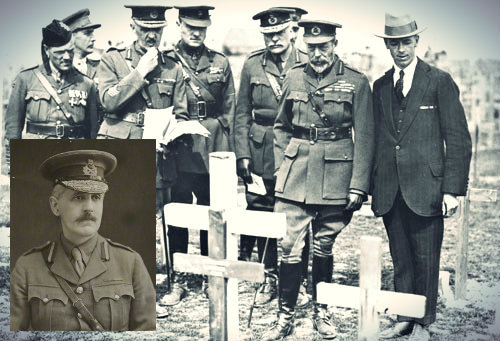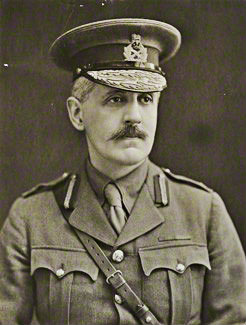Sir Fabian Ware, the unsung hero who made sure that a generation of those who died during the Great War would not be left forgotten, gets his own recognition…finally.
Sir Fabian Ware made sure that the first generation of those who risked their lives during WWI would be remembered by a nation that’s grateful for their sacrifice. He founded the Imperial War Graves Commission. The said organization was, and still is, responsible for marking the graves of those who died during the ‘war to end all wars’. The act was done to make sure the soldiers who gave their lives up for their country wouldn’t lie forgotten.
Now, Sir Fabia Ware will get recognition of his own in celebration of his deeds. The English Heritage has announced that it will be putting up a blue plaque in the honor of the IWGC’s founder. The said commemorative plaque will be placed at his former home, a terraced house located in Marylebone. He lived in this same home from 1911 to 1919, the same years he volunteered his services in the British Red Cross and was assigned in France. He commanded a unit of drivers and vehicles while in service.
The plaque will, then, be revealed by his own granddaughter, Gillian Ware, in a ceremony.
The making of the blue plaque was confirmed during the 100th-year anniversary of the Great War. Its intent is to celebrate the works of Sir Fabian Ware. His deeds were among the first movements to give honor to the soldiers, regardless of ranks, during the war.
Sir Fabian Ware: The History
According to reports, Sir Fabian Ware was struck by the large volume of casualties, yet, the government “lacked any plans to mark the final resting places of these soldiers”. He, eventually, was the one who took the duty himself, writing them all on a permanent record.
The War Office finally recognized his work in 1915. His unit was, then, made responsible for finding, marking as well as recording the graves of the British soldiers in France. Sir Fabian Ware, who was knighted in 1920, went on to establish the Imperial War Graves Commission. This organization, later on, evolved into the Commonwealth War Graves Commission of today.
As to date, the said organization holds the records of about 1.7 million final resting places of WWI and WWII soldiers. It is also responsible for taking care of memorials and war graves in 23,000 locations from over 153 countries.
As Professor Ronald Hutton, the English Heritage Blue Plaque panel’s chairman, pointed out, it was the vision and tenacity of Sir Fabian Ware that secured an honorable final resting place for the 1.7 million who died in the war. In turn, he was able to create a lasting legacy in honor of the sacrifices they made.

